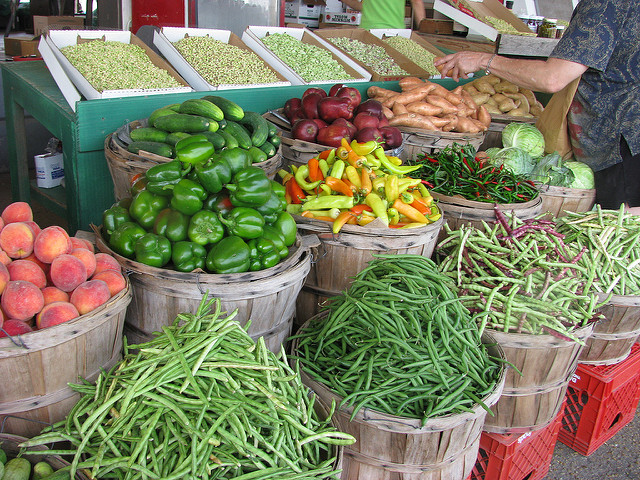
Contact: Andrea Fox, Director, ICMA Center for Sustainable Communities, afox@icma.org, 202-962-3641
Washington, D.C.— Farmers markets, farmland preservation, community gardening, and keeping livestock or bees in residential/nontraditional areas are just a few of the popular food system development initiatives supported by local governments, according to a study conducted by the International City/County Management Association (ICMA) in partnership with the Michigan State University (MSU) Center for Regional Food Systems.
While not yet institutionalized, these and other activities continue to be found among communities of diverse sizes, locations, and forms of government and are strengthening local economies, creating healthier communities, and providing much-needed support to low-income residents.
ICMA and the MSU Center for Regional Food Systems conducted a benchmark survey in 2012 and fielded the follow-up survey in 2015. The preliminary 2015 results from more than 2,200 respondents highlight trends and changes in many areas of community food systems, including food production, processing, distribution, access, and disposal.
Other ways in which local governments support food system development include information sharing and connection building, participation in local food councils, plan/strategy development, and collaboration with neighboring communities.
More than half of responding local governments identified at least one department that had food programs or policies within the scope of its responsibility. Planning, public health, environmental health, economic development, and the manager’s office were the most frequently cited departments.
Responding local governments also indicated that public health, community development, and economic and workforce development priorities motivated their food system work. Among county governments in particular, agricultural land preservation was another important motivation.
When asked to what extent partners such as citizen boards and commissions, the business community, and other groups influence efforts to continue or enhance local food system activities
- Nearly 1,000 communities identified at least one “primary driver” of local food system efforts, with local or national nonprofits topping the list at 20.5%. This new data was collected for the first time through the2015 survey.
- Respondents indicated that local government staff (43.5%), other residents or resident groups (41.3%), and local elected officials (41.2%) most often exerted “some influence” over their decisions to continue and enhance local food service efforts.
- Universities, regional planning commissions or councils of governments, philanthropy, and the federal government were most frequently cited as having no influence.
The survey also captured local governments’ awareness and utilization of various federal programs to fund food system activities. While the U.S. Department of Housing and Urban Development’s Community Development Block Grant program continued to be the most frequently cited program, local governments’ awareness of other programs, such as the Department of Agriculture’s Local Food Promotion Program, has grown since 2012.
The preliminary findings of the 2015 ICMA/MSU Center for Regional Food Systems survey paint a clearer picture of the potential roles and opportunities for local governments and their partners in supporting local food systems. ICMA and the MSU Center will release the full findings of the 2015 survey in the coming months.
ICMA features a number of resources to help communities and advocates with sustainable community food systems, including
- 2015 Growing Local Food Systems Case Studies (Includes executive summary; Catawba County, North Carolina; Decatur, Georgia; Topsham, Maine; and Washtenaw County/Ann Arbor, Michigan),
- Food Security topic page, and
- 2012 Local Food Survey: Results summary report and survey findings fact sheet.
About ICMA
ICMA, the International City/County Management Association, advances professional local government worldwide. The organization’s mission is to create excellence in local governance by developing and fostering professional management to build sustainable communities that improve people’s lives.
About the Michigan State University Center for Regional Food Systems
The MSU Center for Regional Food Systems’ mission is to engage the people of Michigan, the United States and the world in applied research, education and outreach to develop regionally integrated, sustainable food systems. Its vision is a thriving economy and equity and sustainability for Michigan, the country and the planet through food systems rooted in local regions and centered on food that is healthy, green, fair and affordable.
New, Reduced Membership Dues
A new, reduced dues rate is available for CAOs/ACAOs, along with additional discounts for those in smaller communities, has been implemented. Learn more and be sure to join or renew today!
